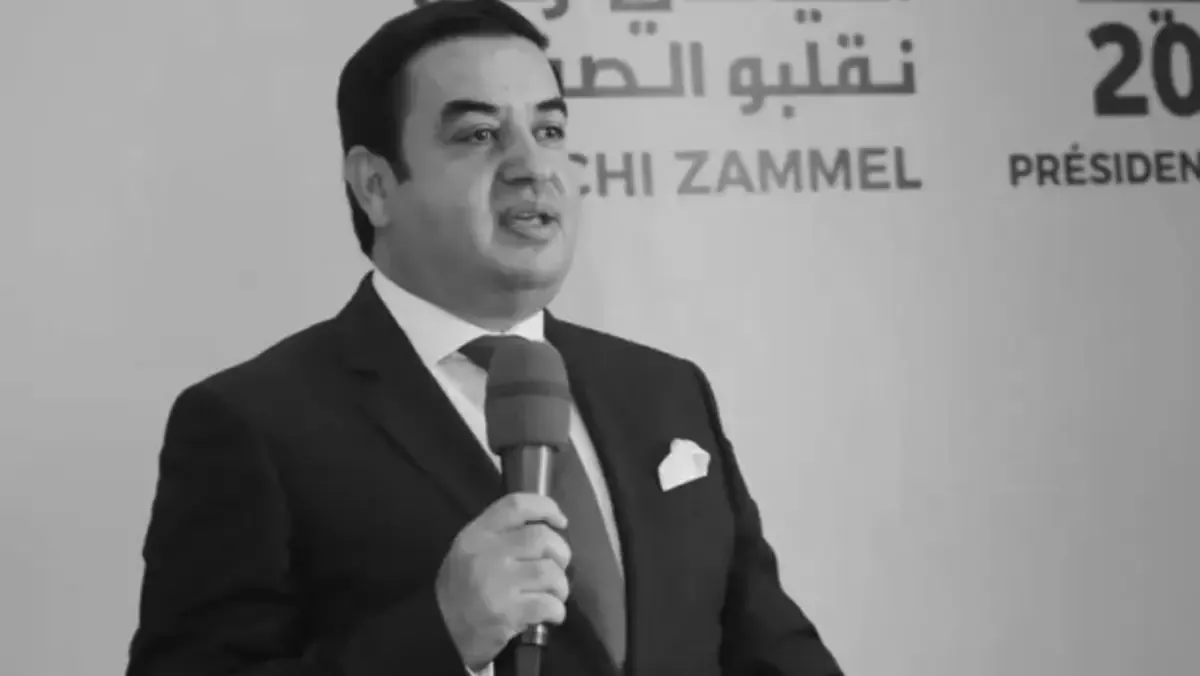The Political atmosphere in Tunisia has been filled with allegations of corruption and authoritarian governance of late. A recent development regarding these challenges is how a Tunisian presidential candidate was sentenced to prison by a Tunisian court. In this article, we explore the background of Ayachi Zammel— one of the candidates for the Tunisian presidential election, the circumstances surrounding his imprisonment, and the implications for Tunisia’s political terrain.
Table of Contents
Ayachi Zammel’s Business and Political Background
Ayachi Zammel, a prominent Tunisian businessman and politician, is the founder and leader of a minor liberal political party. He has previously served in the Tunisian legislature and is mostly known for his moderate stance. Ayachi placed himself as a candidate in the forthcoming Tunisian presidential election who could challenge the existing political elite in the country following his endorsement by Tunisia’s Electoral Commission (ISIEC) after the disqualification of 14 other aspirants. His endorsement highlights that he stands as a strong contender against Kais Saied, who has been in power since assuming office in 2019.
Stories Surrounding the Tunisian Presidential Candidate’s Sentence
Zammel was sentenced to 12 years imprisonment, in a dramatic turn of events a few days before the presidential election. His lawyer made it known that the third sentence would be imposed on him within a two-week period. “This raises concerns about the timing and motivations behind the judiciary’s actions,” the lawyer said. By the record of the court, Zammel was found guilty of falsifying documents related to voter endorsements which was nothing but an accusation that many observers consider politically motivated because of his rising popularity and challenge posed to the established political authority. It is against this backdrop of Zammel’s sentencing that some sources believe the incumbent administration’s ongoing crackdown on political opponents under President Saied’s administration is an intentional move to retain power; hence, complicating the public’s perception of the fairness of the judicial process.
How the Tunisian Presidential Candidate Was Sentenced to Prison
The court proceedings against the presidential candidate showed a swift and controversial judicial process, showing the compromise of the arm of government. His lawyer revealed that Zammel was facing multiple charges which include alleged misconduct in obtaining voter support signatures needed for his presidential candidacy. Initially, Zammel was sentenced to a 20-month imprisonment which was announced on September 18, 2024. This event was soon followed by additional sentences, culminating in a 12-year prison term. Critics argue that this series of judgments reflects a broader strategy by the government to suppress political opposition ahead of the country’s presidential elections. “His incarceration will not stop him from running for the apex seat of the land,” his lawyer said. The lawyer has maintained that irrespective of the pressure mounted on a Tunisian presidential candidate, particularly, his client, he will still run for the presidency, which raises questions about the political landscape in Tunisia and the legitimacy of the electoral process.
Implications for Tunisia’s Political Space
Zammel’s sentencing has significant implications for Tunisia’s political future, revealing the battle between authoritarianism and democracy in the country. Again, the proximity of the judicial captivity set for Zammel towards election period erects a shadow of doubt on the fairness and integrity of the electoral process. This event also raises alarms about the state of human rights and political freedoms in Tunisia at the hands of the incumbent president. Politically, this is the ruling party sending a warning to other prospective dissenting leaders who might want to challenge Saied, to take caution, or else they will end up like Zammel.
Moving forward, the circumstances surrounding Zammel, the Tunisian Presidential Candidate’s case unveil broader issues within the Tunisian judicial system, where politicized accusations and corruption have marred the public’s trust. Unfortunately, this scenario places Tunisia at a crossroads, where the results of the upcoming elections could either strengthen the power of the current regime or install a resurgence of democratic yearnings among the populace.
Final Thoughts
The story of how Ayachi Zammel, a Tunisian presidential candidate was sentenced to prison evidences the critical reminder of the troubling state of democracy in Tunisia. The implications of the issue will, in no doubt, influence the outcome of the forthcoming presidential election, particularly on public sentiment and the political climate in the region. After this event in Tunisia, what happens next?

